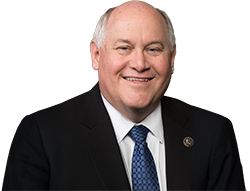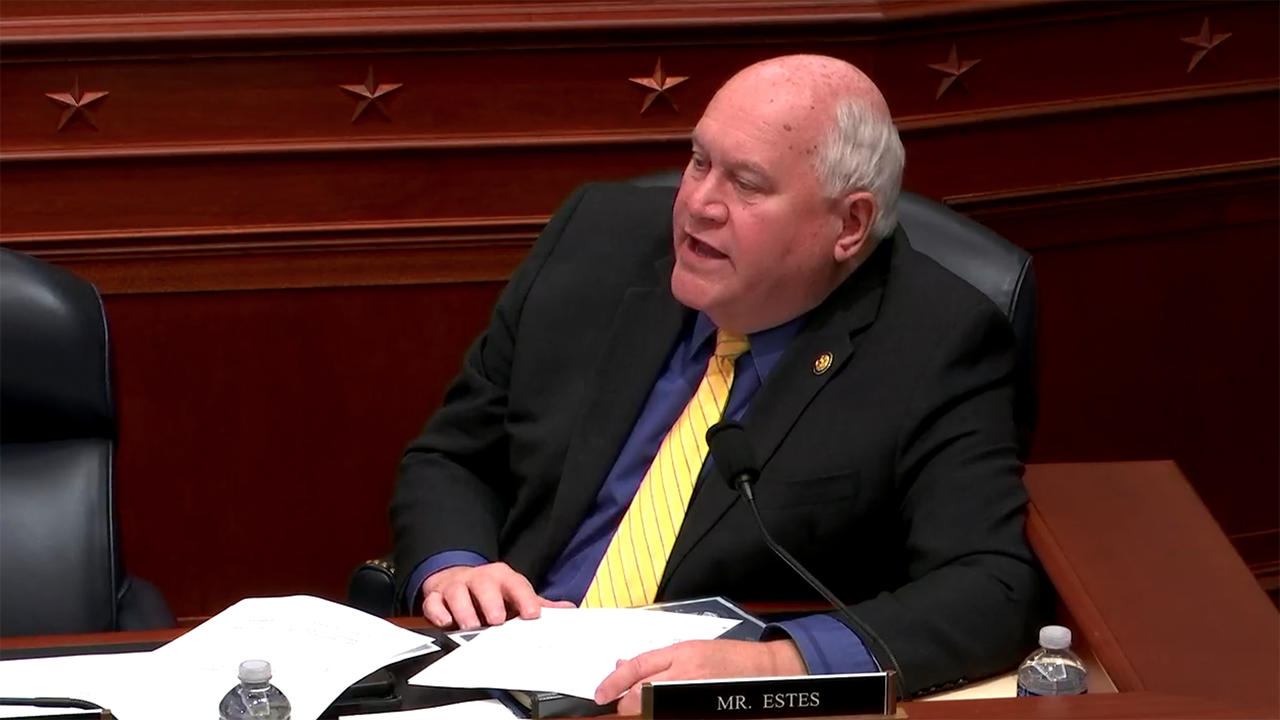ICYMI: Estes Questions CBO Director About Agency Transparency at Budget Hearing
Washington,
November 19, 2025
|
Roman Rodriguez
(316-262-8992)
U.S. Congressman Ron Estes (R-Kansas) questioned Congressional Budget Office (CBO) Director Dr. Phillip Swagel at a Budget Committee hearing titled “Oversight of the Congressional Budget Office” on Tuesday, Nov. 18, 2025. Read his remarks below and watch here. Remarks as Delivered Dr. Swagel, thank you for being here. I know it’s maybe sometimes positive and negative in terms of talking about the things you do and our things we want to celebrate, [or] things we want to criticize or complain about. I know a lot of our discussion today is about transparency, and I think it’s very important as we talk about the agency and the existence for the last 50 years and how important a role the CBO plays in the legislative process. As the designated scorekeepers, it’s important that your reports [and] analysis are available. They have a dramatic impact on bills that come through the House and the Senate – as well as the public perception of what we pass and decisions we make regarding legislation. We need to make sure that CBO works to improve scores, to actually make sure that they align with reality. Like any estimate, there’s going to be some variation. Ideally, you want to minimize that variation up or down within closest tolerance as possible. Unfortunately, as we’ve talked about previously in the committee room, CBO sometimes falls short of making those good estimates that help us make decisions. The biggest example I guess, most current, is that the Congressional Budget Office estimated the score for major pieces of legislation like the Democrats’ Inflation Act. The Energy and Climate provisions in that bill were estimated by CBO at $391 billion, but estimates by Credit Suisse were double at $800 billion, and Goldman Sachs came out with $1.2 trillion. I will note that shortly after the vote was passed, CBO did revise its estimates up through that process. My struggle, and I think a lot of our struggle, is that we’re literally making trillion-dollar decisions based on this information, so we want to make sure it’s the best possible. There [are] other examples we could talk about in terms of inflation estimates or budget deficit estimates. We need to make sure that we are as accurate as possible. One of the things … I think we’ve talked about in other conversations and hearings is some of the executive actions and some of the decisions around executive actions. I know that was a big description that was used in the trillion-dollar myths a year ago, with some of the discussions around that. At the end of the day, we really want to make sure we’re transparent in these things. As I’ve talked about before, working on legislation that would actually require CBO to calculate through the baseline or include in the baseline an update on separate tables detailing some of those judicial or executive actions that have been issued since the last publication that would have a momentous amount – $50 billion or more. Looking at, how do we finalize executive orders and the impacts through that? I know there’s a whole bunch of things that we talk about, and you’ve been hit with a lot of things, ranging from health care and other issues and talking about estimates for economic growth. In my work on Ways and Means, I pushed a lot on research and development and how R&D and other innovative ideas help grow the economy. How can we work moving forward? I want to give you an opportunity to at least have some comments on maybe proposals around executive actions or other things. How do we narrow down the estimates to more closely react and be able to refine that process? |








